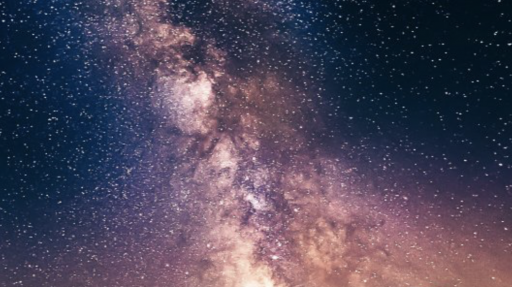A New Genesis | Chapter One

A New Genesis
©2022 by Vernon Miles Kerr and VernonMilesKerr.com
Introduction
Caveat:
This speculative narrative assumes, merely from personal logic, that there is a supreme, over-arching, dynamic, intelligence powering the Universe. Tthis is not an anti-religious, anti-Christian, anti-Islam, nor anti-Anything book. As a matter of fact it is a pro-religion book. This book doesn’t ridicule the “Holy Bilble,” as being “myth,” nor “saga” — which is the popular thing to do, amongst the world’s so-called liberal intelligencia. Why do we, the “educated” respect, revere and constantly refer to. the actual historical myths and sagas, like the Greco-Roman , Scandinavian — and even the Hindu —while denigrating one which really cannot be distinguised from any of them?
So, this book actually promotes the Bible (as canonized by the Counsil of Nicea) as worthy of standing on a shelf containing all of the world’s most respected and revered books of great literature.
One thing that all of these religious traditions have in common is that they were all compiled as a serious effort to understand the mystery of invisible forces which seem to continually effect the lives of humans. As Science reveals the physics behind more and more of those mysterious factors of causaton, the religous books become more quaint and anachronistic — and yet —no less treasured for their wise guidelines for human cooperation and collaboration. Later I will talk about a “plus-factor” which was added to humans at one unkowable moment, and which distinguishes us from all of our fellow animals. It is not consciousness, it is not intelligence, it is not empathy — many of our fellow earhtly inhabitants exhbit all of those. This plus-factor’s evidence is manifested daily, across humanity, in our amazing ability to understand music, to delight in its twists and turns, harmonics and dischords — to gape and nearly collpase to our knees, when standing before natural wonders like the Grand Canoy or the Gitant Sequoias — and to continuallly seek purposë for human existence against the stars arrayed above us. Who can say that any of those works of religious yearning, listed above, were not at least partially inspired by the one who added that plus-factor?
Historically speaking, greedy and power-hungry humans have always managed to hi-jack every body of spirityally-inspired writing and to use it as the basis for building empires of religiosity.
Quoting the first sentence of this Introcution, “This speculative narrative assumes, merely from personal logic, that there is a supreme, over-arching, dynamic, intelligence powering the Universe. ” If our DNA contains more data than, merely that which is necessary to construct a human being, then maybe my own, being only three generations removed from a pure, indegenous North American, explains this assumption. The so-called North American Indians seemed to have one common belief: there is one Great Creator Spirt, and that spirit hears our prayers. Things like this don’t need to be proven, they either resonnate or they don’t. But, the author’s fervent hope is that by removing reliance on the Bible, or any other so-called “holy book,” and looking at the Universe objectively, maybe this “resonation” will be felt.
Chapter One
A Pseudo-Poem
In this beginning, God the Creator once again lit a spark Which expanded outward and coalesced Into an amporhous network of diaphonous gas and energy. As threads of matter condensed into random stars There was light. God watched. Events occured: collisions, explosions, condensations. Would it be the same thing again? Not that God couldn't extrapolate future events, But did God willingly chose not to, In order to enjoy surprise? As God watched, planets formed around some stars And some of those eventually produced life. Did God chose to forget that He built this propensity Into this iteration's physics? Maybe God likes to be surprised, As we do, when reading or watching a drama. Maybe He watched, as Life became more complex And Self-moving life became ever more adapted To surviving on Earth.
God created “humans” in the base algorithm of this iteration of this Universe.
Deep within the nexus of energy that would become the “Big Bang,” was the evolutionary rule that would result in some kind of life, somewhere, and—eventually—an animal that would warrant His placing a non-physical not-of-this-universe extension of His own mind within theirs. That somewhere may have happened on billions of planets—given the immenseness of this Universe, with it’s trillions of galaxies, each containing trillions of stars, and each one of those, containing the possibilty for developing planets of various composition and various diameters of orbit.
To we humans of Earth, the successful placing of the James Webb Telescope has already widened our concept of the immenseness of both time and distance— which has existed since that moment of creation.
When this Universe was only an idea, we humans, and any other similar animals elsewhere, were a spark in our papa’s eye—at a time incomprehensible to us.
But, that which is “incomprehensible” to us, is “Breaking News” to our Creator. So, how could He not love us and them (those like us on other planets) and not be vitally concerned with how each of us has used that later-bestowed essence of His own mind?
